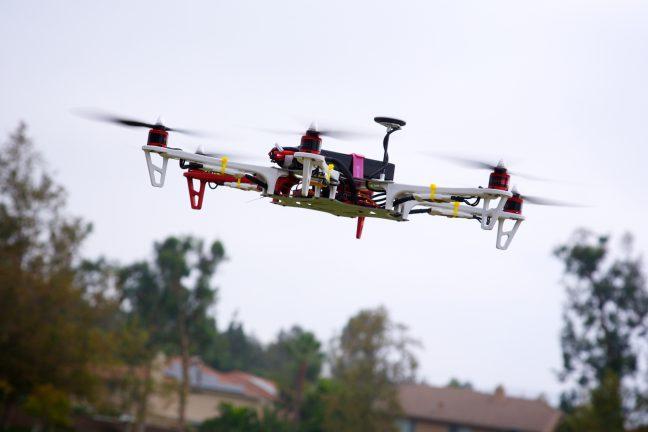The University of Wisconsin may modify rules concerning drones and Unmanned Aerial Vehicles on campus after the Federal Aviation Administration released new regulations last month, according to a UW drone expert.
Though the Badger Drone Club on campus is dedicated to drone use, current UW regulations prevent its members from flying these devices on campus. Possible changes to the ban would allow more students in the club to use drones at events around campus.
The FAA changed the regulations to implement the first operation rules for routine non-hobbyist use of drones and UAVs. According to an FAA press release, the provisions of the new rule are designed to minimize risks to other aircrafts, people and property on the ground. Some of the regulations include a weight restriction of 55 pounds, a time restriction that only allows flight in the daytime and a maximum altitude of 400 feet above the ground.
At the moment, UW bans the use of all drones and UAVs on campus. Tricia Nolan, UW’s assistant vice chancellor of marketing, said the ban is due in part to previous federal regulations and physical safety, security and privacy concerns.
“Even if a drone operator is in compliance with all federal regulations, as a public space with thousands of people, we have additional considerations around physical safety, security and privacy,” Nolan said.
Due to the drone ban on campus, the Badger Drone Club is ultimately restricted as well.
Ben Viggiano, president of the Badger Drone Club, said the student organization was originally created to provide an outlet for students interested in getting involved with drone technology.
“We were thinking of different ways we could provide different video photography to the school and the different clubs and sports and teams,” Viggiano said.
Viggiano said problems for the group began when someone flew a drone above Camp Randall. After that, they couldn’t do much on campus, and they are still waiting for regulations to change so they can be more active again.
Nolan said even if the Badger Drone Club were in compliance with all the federal guidelines, the university would not give its members permission to take photos at events because of the other concerns.
But Chris Johnson, associate lecturer in the UW College of Engineering and director of flight simulation research, said he is currently working as a consultant to the UW legal office trying to change the campus policy to aline with FAA regulations.
Nolan said she believes the policy will evolve over time, but for now the university is taking a cautious approach.
“It’s a rapidly evolving landscape, and at this point we’re trying to balance the safety, security and privacy concerns that come with a large public campus against the legitimate research, business and just-for-fun uses that drones provide,” Nolan said.
Johnson said there would need to be appropriate accountability and an application process to ensure people are operating within the confines of the law.
There is often a stigma associated with drones, mainly because of privacy concerns, Johnson said.
Johnson said there will inevitably be people who use the technology to gather images they are not authorized to collect, but that drones are mostly used in ways that benefit the public.
“These are applications that are going to improve people’s lives, and not the typical big brother sort of fear of being spied on all the time,” Johnson said.
Many people want to use drones to collect data, detect explosives, count cattle or even improve people’s connectivity at sporting events, Johnson said.
Viggiano said he hopes new university regulations will be put in place so the Badger Drone Club can kickstart their activity on campus.
“This is now just opening the door,” Viggiano said.


















